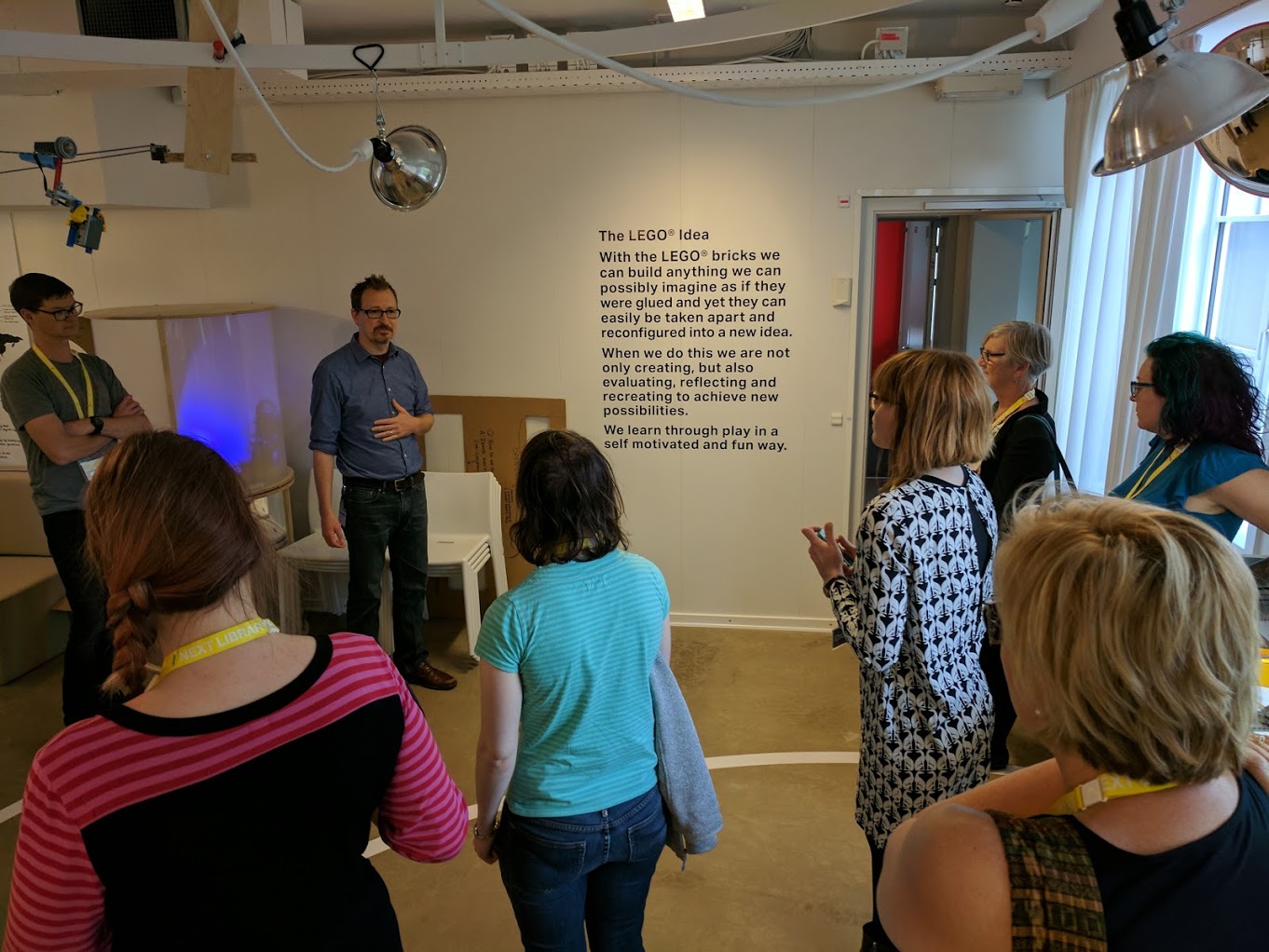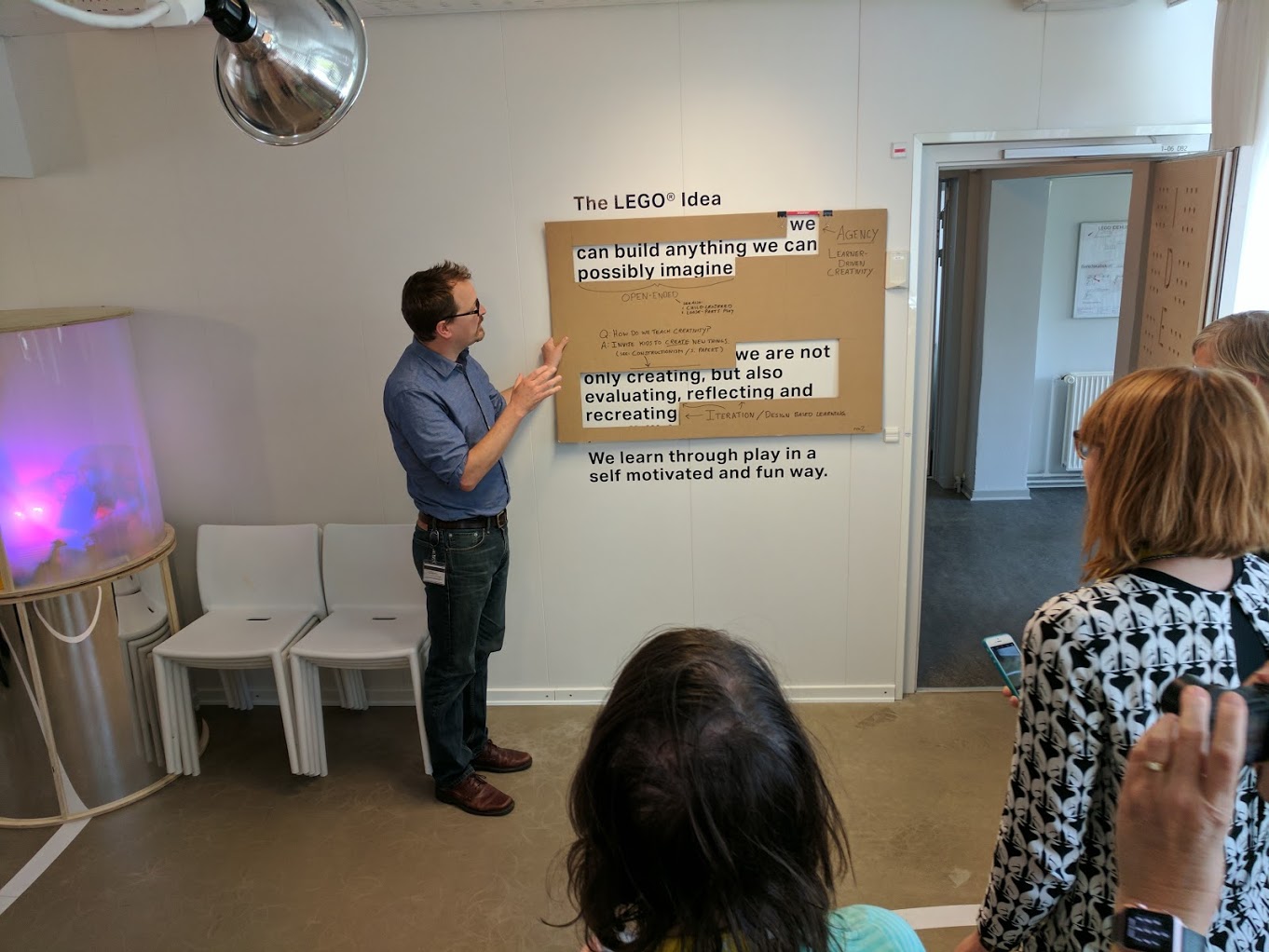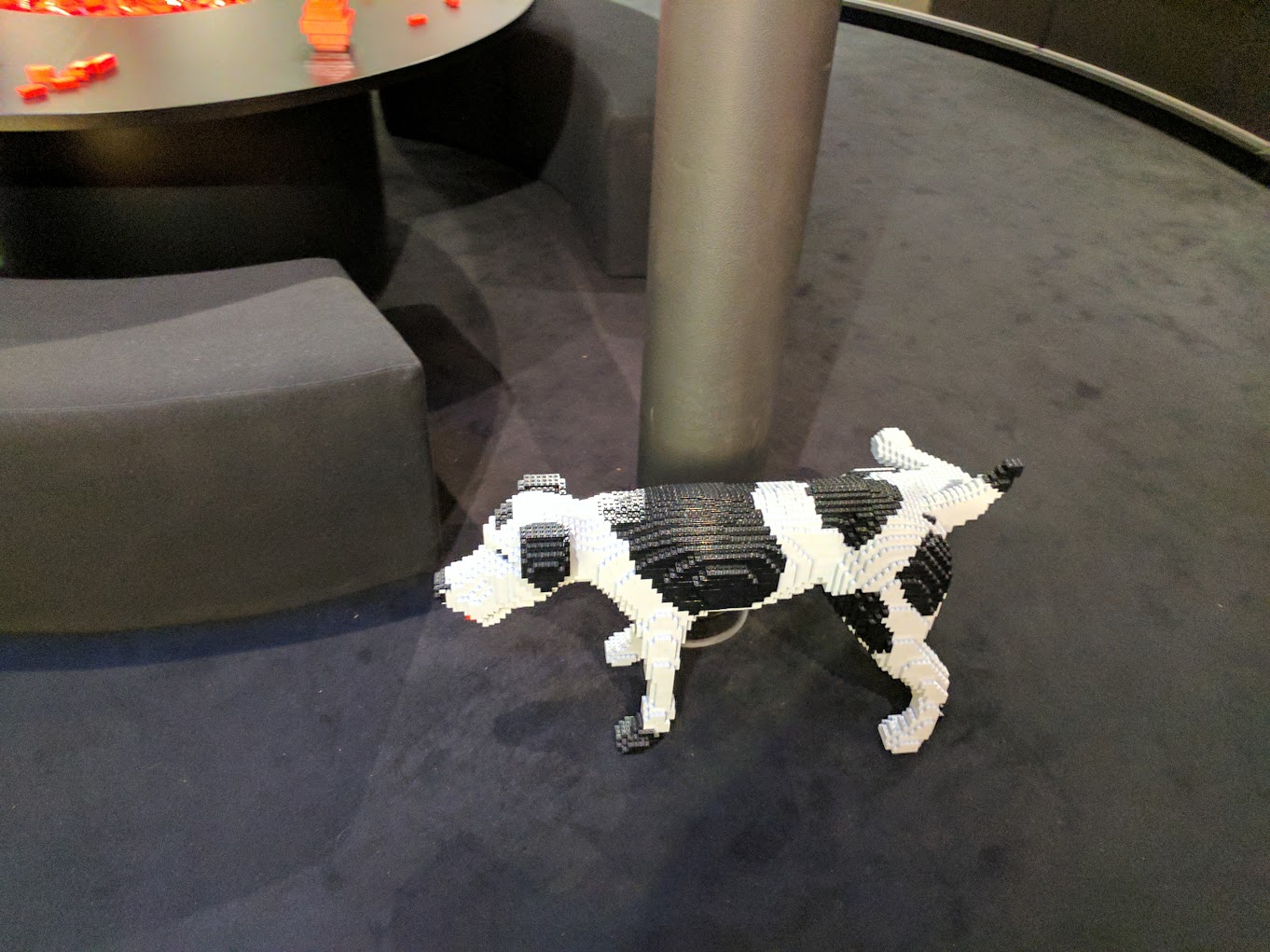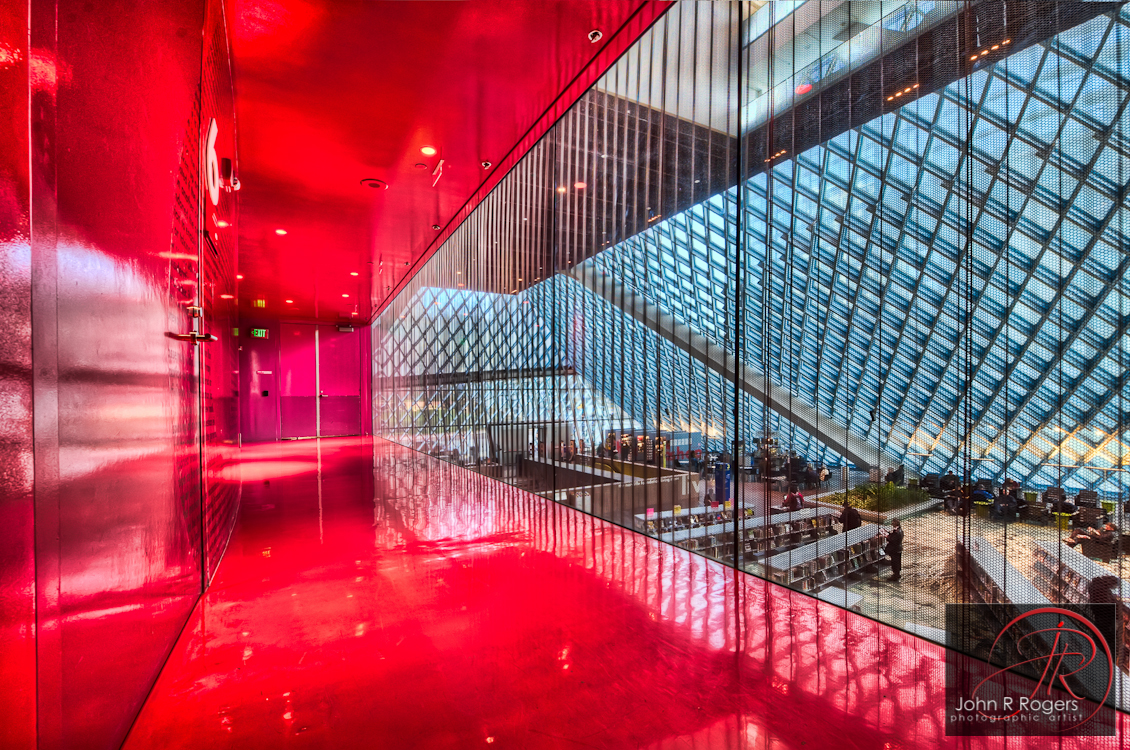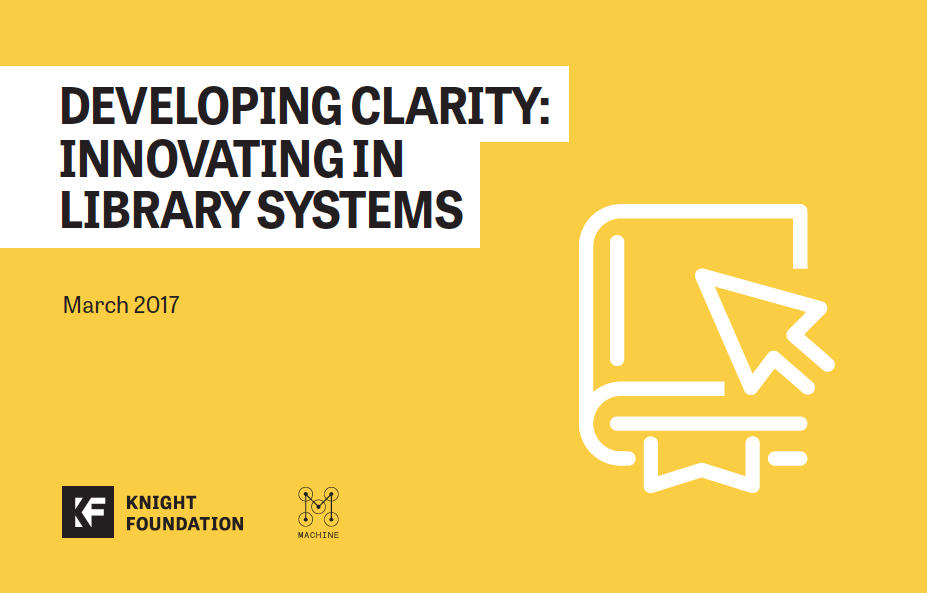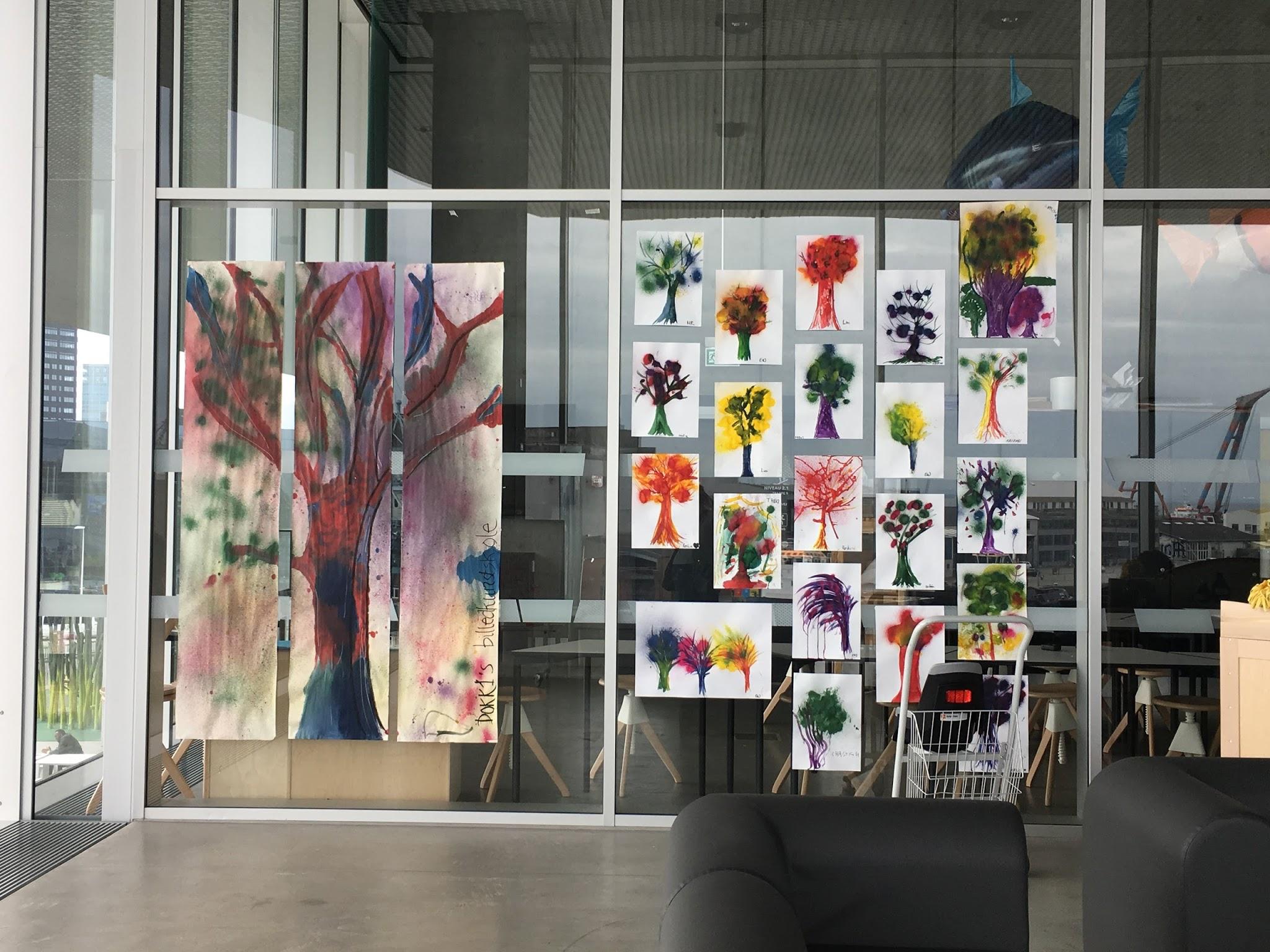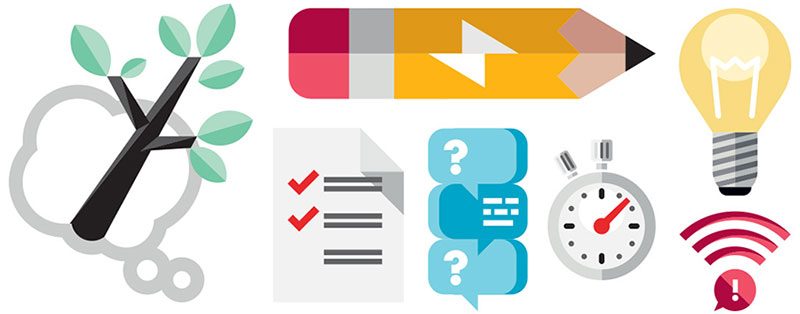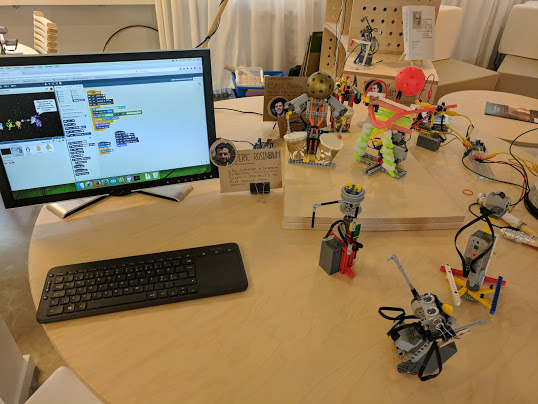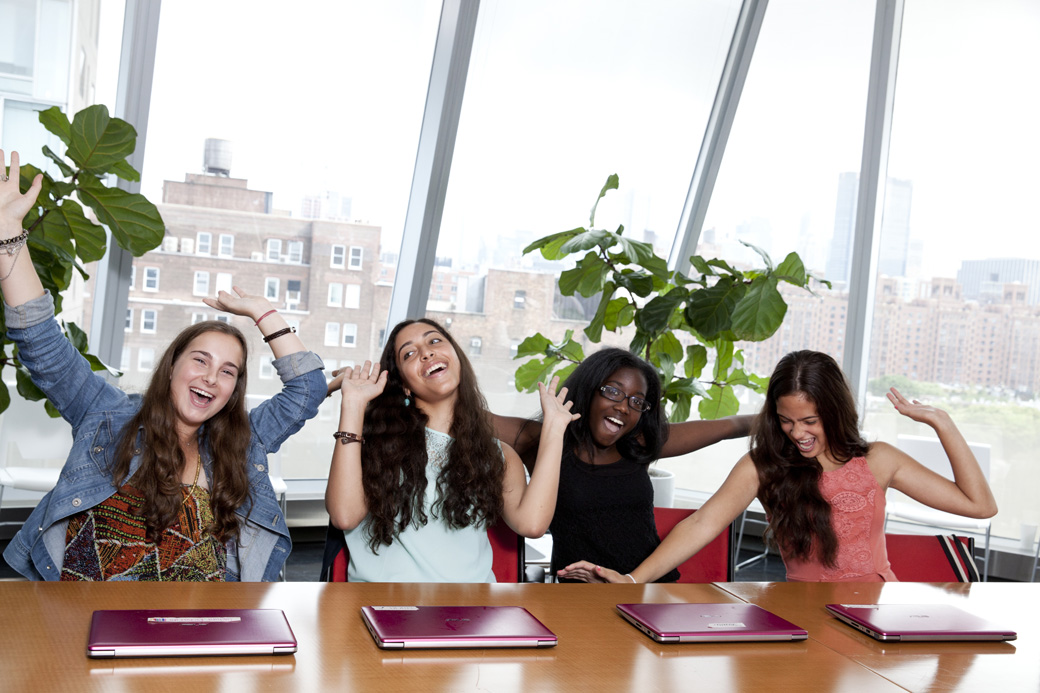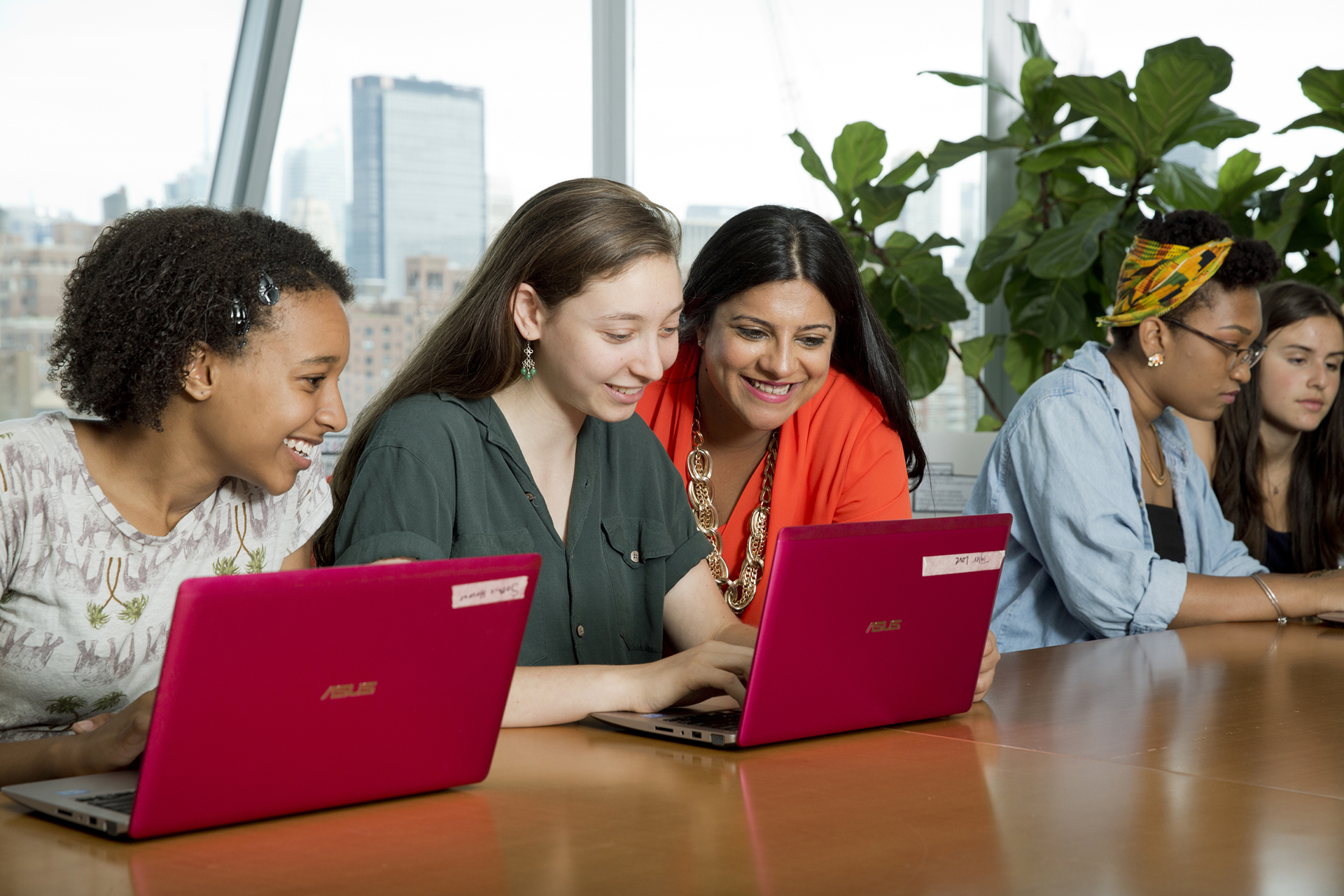To increase literacy in Macon by supporting the implementation of PRIME TIME, a multi-generational program that advances both adult and childhood literacy outcomes.
Program Area: Community Impact
To support the Silver Knight Awards, which honors outstanding high school seniors who have not only maintained excellent grades but have applied their knowledge and commitment to contribute significant service to their schools and communities.
In June, Knight Foundation sent a cohort of U.S. librarians from institutions around the country to the Next Library Conference, an annual gathering held in Aarhus, Denmark that brings together library leaders from around the world to discuss innovative programs, services and ideas in the field. 20 U.S. librarians from 11 cities joined hundreds of colleagues who attended the conference from around the globe, from China to Kenya to the Caribbean.
The goal was to spread best practices in library innovation, while helping their capacity to meet new digital age demands. The initiative is part of Knight’s larger work to help libraries better serve 21st century information needs. We believe libraries are essential to addressing information challenges and creating opportunities for communities to engage with information, new ideas and each other. The conference was an opportunity to connect U.S. libraries in order to share practices and approaches being used to attract new patrons around the world, as well as gather insights from them that can help to further inform our strategy.
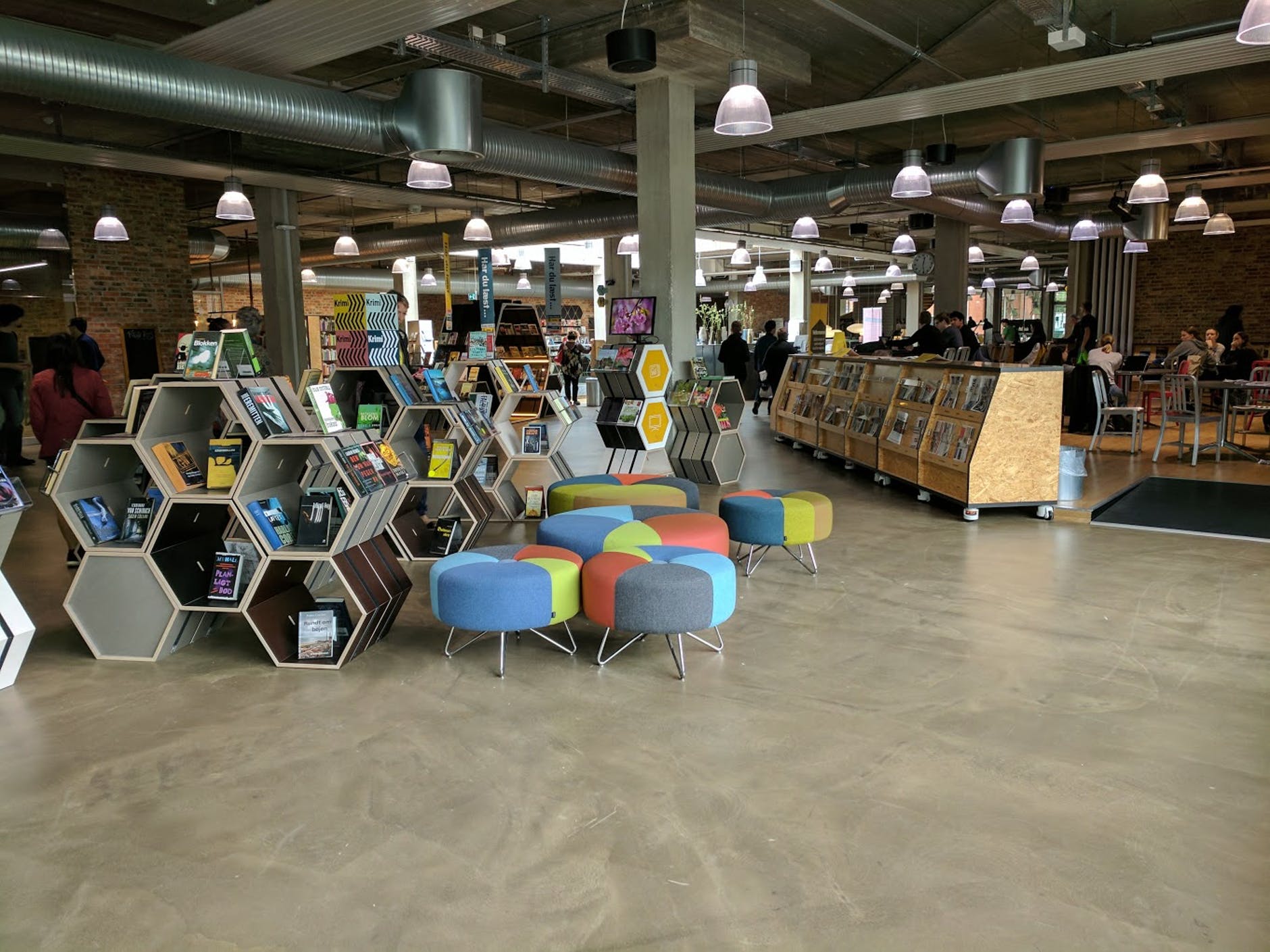
Here are some of the lessons the librarians brought home:
1. People need libraries to be more than information repositories.
Libraries can play a role in organizing town halls, and offer playgrounds, social services and much more. Flexibility, vision and open-mindedness in the design and architectural planning process are essential to facilitating this evolution.
Shana Hinze of Miami-Dade Public Library System elaborates on her experience touring Dokk 1, a public library in Aarhus: “One of the most fascinating concepts was the library as a community meeting place juxtaposed with traditional library services and programs, civil services, television studios, restaurant and café, space for fine arts and spaces specially designed for different ages and needs. Dokk 1, at any given moment, could be hosting: driver’s license, passport, healthcare and marriage services, knitting group, gamer’s tournament, reading club, seminars, makers lab, musical performance and always available activities such as sand table, ping pong, air hockey, gaming, active play areas and meditation.”
Pamela J. Hickson-Stevenson of Akron-Summit County Public Library summed it up this way: “We need to focus intently on making our buildings locations for experimentation, innovation, education, recreation and relaxation.”
2. Libraries can play a key role in preserving and strengthening our democracy.
As civic hubs for information and engagement, libraries can encourage people to get involved in their communities, connect with local issues and become more knowledgeable citizens and voters.
As Tonya Head of Lexington Public Library put it: “Libraries have always played a role in a strong and flourishing democracy, but the role we play now is more crucial than ever. I was surprised to hear that library staff around the world are experiencing the same challenges, but I was not surprised that all of us are meeting those challenges with optimistic innovation. Many of us expressed the desire to work more closely together, and are more certain than before that if we form a more unified, worldwide library association, we can be even more effective in solving the challenges that face us. There is a huge opportunity for libraries throughout the world to engage our world community and strengthen our democracies together.”
Playful and creative spaces can still be functional spaces. At the Lego Idea house in Billund, the message is: Libraries need to commit to deliberate practices for creativity and play, too. Photos: Julie Oborny
3. The ways in which librarians perceive and interact with the public is a key determinant of a library’s success.
Are ideas from members of the public seen as interference or welcomed as opportunities to evolve? Libraries must be guided by public input on what services are needed and useful.
Jennifer Lautzenheiser of Middle Georgia Regional Library explains: “As a library system, we need to learn to trust our patrons, staff members and community to build the library they need, instead of purely our determination of their needs.”
Jenni Gaisbauer and Seth Ervin of Charlotte Mecklenburg Library Foundation and Library respectively put it this way: “Speaking with peers from all over the country provided validation that we all need to become more citizen-centric; libraries have to let go of facilitation and realize the people are in charge now.”
4. Embracing innovation and collaboration and admitting failures are key to a library’s success.
In order for library organizations and staff to grow and innovate, they need to embrace a cultural shift, let go of old norms and put people first.
Thomas Lide of Richland Library describes this lesson: “Visiting the libraries of Silkeborg, Herning and Aarhus, [in Denmark] I saw thoughtful and deliberate design evident not only in the beautiful physical spaces, but in the collaborative and inventive approaches to providing – and improving upon – services for communities. … We need to make and acknowledge mistakes, share what we don’t know and explore solutions together. We need to practice creativity, empathy and listening, and create opportunities for interactive learning and inclusive problem-solving.”

5. Libraries can play a leadership role in revitalizing and sustaining communities.
As cities across the United States strive to grow, remain competitive and adjust to a rapidly changing environment, libraries offer a place where people of different backgrounds and income levels can meet and connect. They can draw people out of their homes and into public spaces, advancing interaction and collaboration of all kinds.
Cynthia Berner of Wichita Public Library said: “Next Library inspired in me the idea that libraries should move beyond organizing information to organizing communities. Throughout the world, traditional library collaborations are being replaced with public/civic partnerships that ensure inclusion as they enhance the vibrancy and sustainability of communities.”
Tiffany Nardella of Free Library of Philadelphia adds: “Asking the right questions, to the right people (including those who are ‘unlike’ us) will help us determine our critical needs, goals and opportunities.”
Conference attendees repeatedly stressed the importance of libraries providing both increased public access to up-to-date technology as well as greater opportunities for person-to-person interactions.
Erin Berman of San Jose Public Library offered this eloquent summary of the conference and its themes: “Play. Connection. Empowerment. Democracy. Flexibility. These themes echoed across the Next Library Conference in presentations, conversations and tours. I was reminded to find ways of incorporating playfulness and culture into building designs back at home. Building flexible spaces allows patrons to set their own mood, tone and experience. By setting up an intentional framework and welcoming space, libraries can empower users to play an active role in their citizenship and democracy. … Libraries are the platform to raise the world’s democratic voice. Next Library inspires a connected library profession across the world which seeks to build pathways towards empowerment together.”
-
Communities and National Initiatives / Article
-
Communities and National Initiatives / Topic
-
Communities and National Initiatives / Article
-
Information and Society / Report
Additional Innovative Libraries Content
- Next Library Aarhus 2017External Content / Website
- Design Thinking for LibrariesExternal Content / Website
- Next Library participant photo essayExternal Content / Website
To equip the Baltimore Community Foundation to take a leadership role in addressing its community information needs by participating in the Knight Community Information Lab.
To equip the Cleveland Foundation to take a leadership role in addressing its community information needs by participating in the Knight Community Information Lab.
To improve economic development in Akron’s Middlebury neighborhood by supporting a strategic planning process for a pilot community development corporation.
To equip the Community Foundation Boulder County to take a leadership role in addressing its community information needs by participating in the Knight Community Information Lab.
To equip the Lancaster County Community Foundation to take a leadership role in addressing its community information needs by participating in the Knight Community Information Lab.
There is magic happening on the fifth floor of Miami Dade College’s Idea Center. Girl magic, that is.
Amid the gray and teal walls of MDC’s hub for innovation and entrepreneurship, a group of bright high school girls have gathered to take part in the Girls Who Code Summer Immersion Program. A seven-week learning adventure, this program is designed to give girls an introduction to programming languages while simultaneously empowering them with tools to create websites, apps and networks of friends and mentors in the field of technology.
In 2015, the Knight Foundation awarded Girls Who Code a $500,000 grant for the Summer Immersion Program in Miami. This was an opportunity for Knight to support ongoing efforts that focus on closing the gender gap in the tech sector. With the landscape of employment opportunities rapidly growing around technology, investing in programs like Girls Who Code is critical not just for our commitment to informed and engaged communities, but also to our belief in equitable, racially inclusive participation.
Since its inception in 2012, Girls Who Code has directly benefitted over 40,000 girls across the country – and this is just the start. With more than 90% of Summer Immersion Program participants stating their intent to major in computer science or pursue a related field, this is a testament to the importance of programs focused on transforming the status quo. Girls and women are enthusiastically demonstrating their willingness and ability to take advantage of the new opportunities created by these programs.
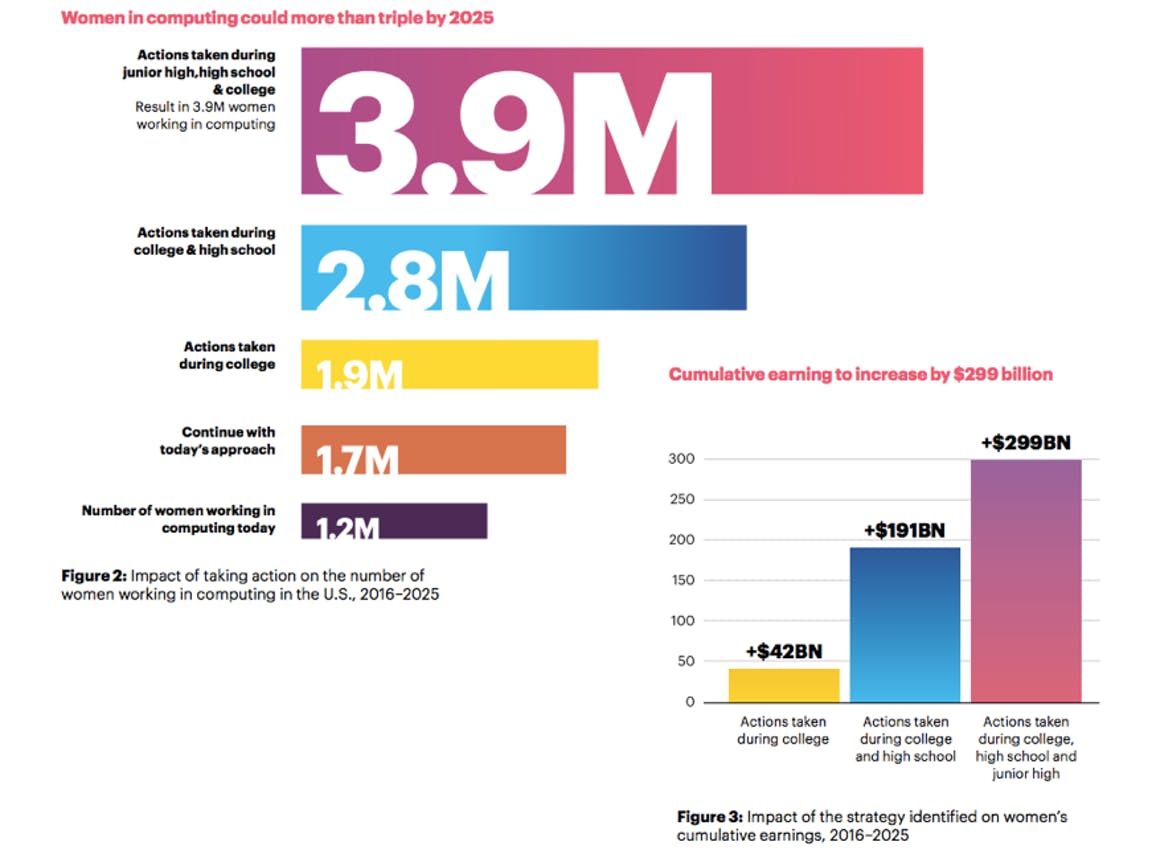
There is an even bigger need for extracurricular programs like Girls Who Code considering the short supply of computer science education across grade levels in the United States. On average, in states like Florida, California, Texas, New York, Illinois, and Pennsylvania, only 17% of schools with Advanced Placement (AP) programs offered the AP Computer Science course in 2016. Of those students who did take the AP Computer Science test in these states, only 22.5% were female. Girls coming from minority backgrounds made up an even smaller percentage of the total number of students enrolled. Supporting inclusive initiatives like Girls Who Code that intentionally focus on young women of color is critical to achieving gender and ethnic diversity in the tech field.
This month, I attended Mentor Day, an event hosted by the MDC Girls Who Code cohort. This was a special gathering intended to help students kick-start their networking skills and provide them with the opportunity to ask panelists questions about the college application process, getting an internship and tackling instances of gender discrimination in the professional world.
Mykalah Lawrence, an incoming high school senior at the School for Advanced Studies at Miami-Dade College’s North Campus, noted that one of the most valuable experiences she has gained from Girls Who Code has been the opportunity to find a supportive group of peers. “Before coming here, I didn’t have a large sense of community with other women, because at my high school a lot of girls are competitive and not willing to help,” Lawrence explained. “The girls at Girls Who Code are nonjudgmental and everyone is helpful. It feels like a true sisterhood.”
Ibis Fonte, a Girls Who Code instructor, talked to me about the pivotal role Girls Who Code plays in South Florida’s tech sector. “Many of the girls do not have access to learn these technologies in their high schools. By having access to this education, meeting other girls who are excited about technology, and learning from role models who are working in tech, the idea of being in this field seems much more attainable,” explained Fonte. “Eventually, they will be active participants in innovating within the tech sector and contributing a different point of view in their teams. And once they see it as possible, sky’s the limit.”
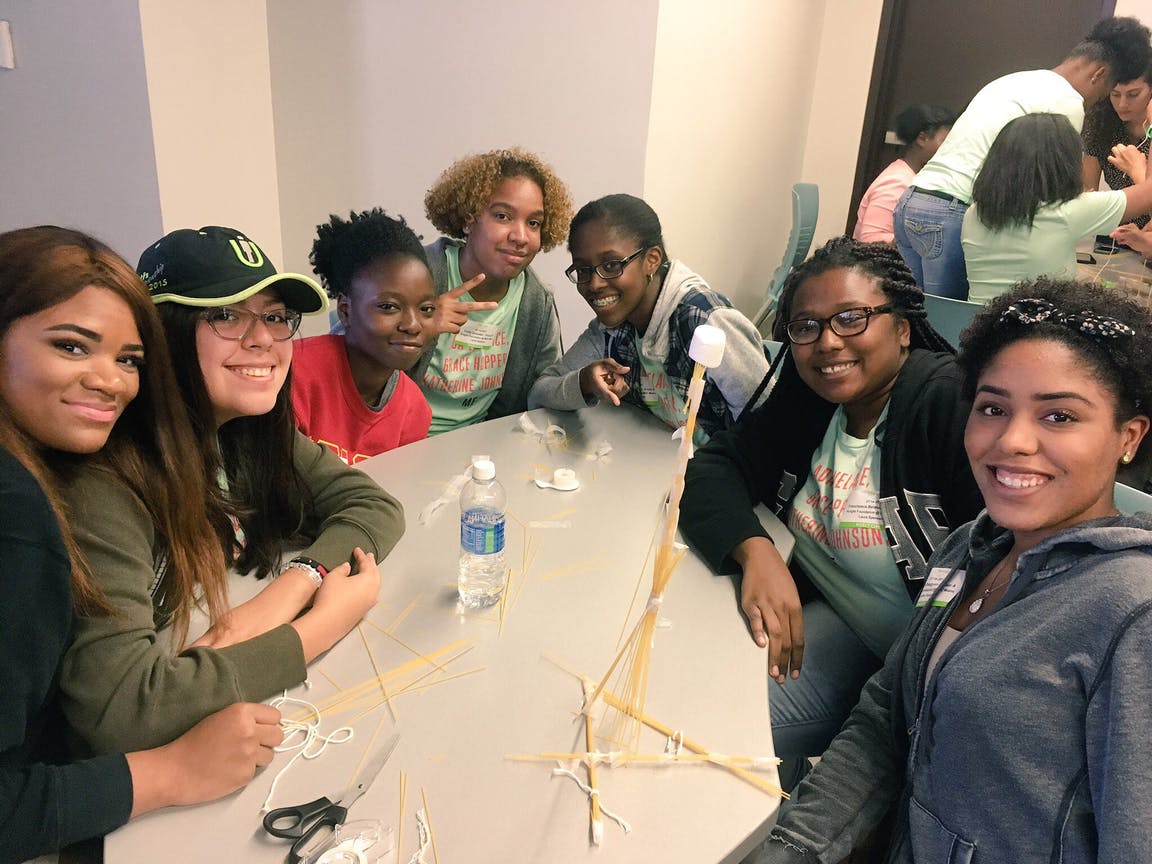
As an alum of Miami-Dade County Public Schools, I felt a special connection with the Miami cohort because I had been in their shoes not long ago. In 2013, I graduated from Felix Varela Senior High, a public school in West Kendall, and set sail for Stanford University. Before attending Stanford, I had very limited knowledge about computer science; as a result, when I enrolled in Stanford’s introductory computer science sequence CS106A, my experience was suboptimal. I will never forget how uncomfortable I felt in that course as the inevitable imposter syndrome crept into my brain. As I recounted this story to the girls on Friday, I realized how much I would have benefitted from participating in a Girls Who Code program when I was younger.
While I was at the event, I thought back to a TED Talk given by Girls Who Code Founder and CEO Reshma Saujani, which focused on the importance of instilling bravery in girls:
“And so I need each of you to tell every young woman you know – your sister, your niece, your employee, your colleague – to be comfortable with imperfection, because when we teach girls to be imperfect, and we help them leverage it, we will build a movement of young women who are brave and who will build a better world for themselves and for each and every one of us.”
I heeded this advice and left Mentor Day feeling hopeful for a group of 40 young women who now had the tools to chart their own educational and professional path, and even more grateful to work with a foundation that recognizes the importance of investing in women cracking the gender code in the world of computing and technology.
Maria Cristina Chicuen is the intern for the Community and National Initiatives program. You can reach her at [email protected].
-
Community Impact / Article
-
Community Impact / Article
To promote community information and engagement through supporting the fourth year of Detroit Homecoming, an event to re-engage Detroit alums in investment in and conversation with their city.
To advance a more livable, walkable and equitable community by supporting the strategic growth of Open Street’s 704.
